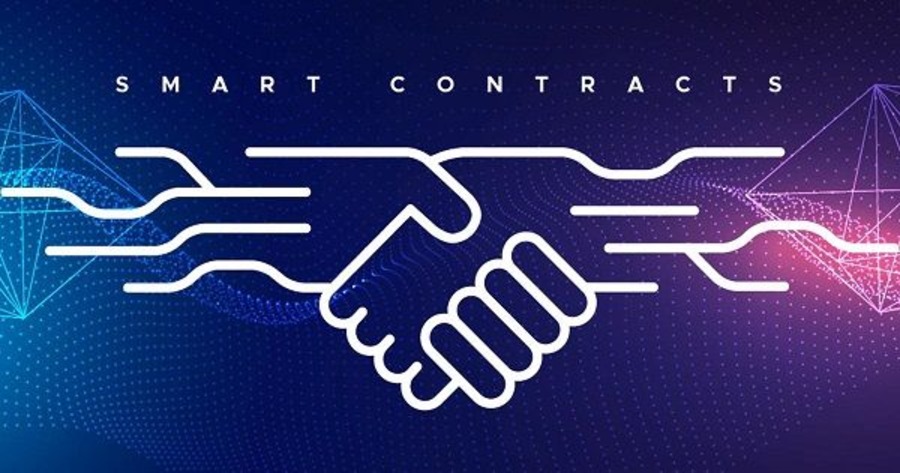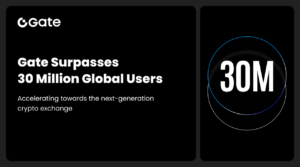Enhancing Transparency and Trust with Smart Contracts

Enhancing Transparency and Trust with Smart Contracts
In today’s digital age, where trust and transparency are crucial elements for successful business transactions, smart contracts have emerged as a groundbreaking solution. With their decentralized nature and self-executing capabilities, it revolutionize traditional contract processes, enhancing transparency and fostering trust among parties involved. In this article, we will explore the concept of smart contracts, their benefits, and how they can be used to enhance transparency and trust in various domains.
Importance of Trust and Transparency
In the fast-paced world of business, trust and transparency play a vital role in building strong relationships and facilitating successful transactions. However, traditional contract processes often involve intermediaries, lengthy procedures, and potential risks of fraud or misinterpretation. This is where these contracts come into the picture, offering a secure and efficient alternative.
Understanding Smart Contracts
Smart contracts are self-executing agreements written in code, stored on a blockchain network. These contracts automatically enforce the predefined terms and conditions without the need for intermediaries. The underlying blockchain technology ensures immutability, security, and transparency throughout the contract’s lifecycle.
Benefits of Smart Contracts
- Efficiency: They eliminate the need for manual handling, reducing human error and streamlining the contract execution process.
- Cost-effectiveness: Removing intermediaries and automating processes can significantly reduce transaction costs.
- Transparency: Smart contracts’ decentralized nature enables all parties to view and verify the contract’s execution, ensuring transparency and fairness.
- Security: The cryptographic nature of these contracts and their storage on a blockchain network make them highly secure, minimizing the risks of fraud or tampering.
Enhancing Transparency with Smart Contracts
It introduces a new level of transparency in business transactions. As all contract terms and actions are recorded on the blockchain, they become immutable and auditable. This transparency helps to prevent disputes, as every action taken within the contract is visible and traceable.
Improving Trust in Business Transactions
Trust is the foundation of any successful business relationship. With smart contracts, trust is enhanced through transparency, immutability, and automation. Parties can have confidence in the predefined rules and conditions enforced by the smart contract, eliminating the need to rely solely on the counterparty’s word.
Applications of Smart Contracts

- Supply Chain Management: It can track and verify the movement of goods, ensuring transparency and authenticity throughout the supply chain.
- Financial Transactions: These contracts enable secure and efficient peer-to-peer financial transactions, reducing the dependence on traditional banking systems.
- Real Estate: These contracts simplify the process of property transfers, ensuring transparency and reducing the risks of fraud.
- Healthcare: These contracts can securely store and share patients’ medical records, ensuring privacy and facilitating interoperability between healthcare providers.
Challenges and Limitations of Smart Contracts
- Legal and Regulatory Frameworks: The current legal frameworks may not fully accommodate these contracts, requiring updates to ensure their enforceability.
- Technical Complexity: Developing and implementing these contracts require technical expertise and familiarity with blockchain technology, which can be a barrier for some businesses.
- Security Risks: While these contracts offer enhanced security, vulnerabilities in the underlying code or the blockchain network itself can pose risks. Conducting thorough security audits and ensuring best practices are followed during the development and deployment of smart contracts is essential.
- Scalability: As these contracts become more widely adopted, scalability becomes a concern. Blockchain networks need to address the challenge of handling a large number of transactions efficiently.
The Role of Blockchain Technology
Smart contracts are closely intertwined with blockchain technology. Blockchain serves as the underlying infrastructure that supports the decentralized and transparent nature of these contracts. In a blockchain network, each transaction or contract execution is recorded in a distributed ledger, ensuring that all participants have access to the same information. This eliminates the need for a central authority or intermediary to validate and enforce contracts.
By leveraging the security features of blockchain, they provide an auditable and tamper-proof record of all actions taken within the contract. The immutability of the blockchain ensures that once a transaction is recorded, it cannot be altered or deleted, thus providing a high level of transparency and trust.
Ensuring Accuracy and Precision
One of the significant advantages of smart contracts is their ability to execute predefined rules and conditions with utmost accuracy. Traditional contracts often involve manual processes and rely on human interpretation, which can introduce errors and discrepancies. These contracts, on the other hand, automate these processes, ensuring that the terms and conditions are followed precisely.
Through the use of if-then statements and conditional programming, these contracts can enforce the agreed-upon rules without any room for misinterpretation. This reduces the potential for disputes and fosters trust among the parties involved.
Building Trust through Consensus Mechanisms
Blockchain networks rely on consensus mechanisms to validate and verify transactions. These mechanisms ensure that all participants in the network agree on the state of the ledger and the execution of these contracts. The most common consensus mechanism is Proof of Work (PoW), used by networks like Bitcoin, where participants compete to solve complex mathematical puzzles to add a new block to the chain.
Consensus mechanisms provide a trust layer in smart contracts by requiring multiple participants to agree on the validity of transactions. This distributed consensus ensures that no single party can manipulate or alter the contract’s execution, further enhancing trust and transparency.
Addressing Disputes and Conflict Resolution
While these contracts aim to automate and streamline contract execution, disputes and conflicts may still arise. Resolving such issues within a smart contract framework requires careful consideration.
One possible approach is to include dispute resolution mechanisms within the smart contract itself. These mechanisms can outline predefined steps for conflict resolution, such as involving a neutral third party or engaging in arbitration. By embedding dispute resolution processes in the contract, parties can address potential conflicts proactively and minimize the need for legal intervention.
Regulatory and Legal Considerations
As smart contracts gain traction, regulators and legal frameworks are starting to address their implications. It is essential to consider the legal aspects of these contracts and ensure compliance with relevant laws and regulations.
While these contracts can automate many aspects of contract execution, they should still align with existing legal frameworks. Contract terms and conditions need to be drafted carefully to ensure their enforceability within the jurisdiction they operate. Collaborating with legal professionals who understand both blockchain technology and the legal landscape can help navigate these complexities.
Exploring Hybrid Models
In some cases, a hybrid model that combines traditional legal agreements with smart contracts may be appropriate. Certain legal agreements may require additional layers of complexity and flexibility that are not easily captured within a smart contract’s code. By integrating traditional legal agreements with these contracts, businesses can strike a balance between the advantages of automation and the nuances of legal compliance.
Hybrid models can leverage the transparency and automation of these contracts for certain aspects while utilizing traditional legal agreements to handle more intricate or evolving requirements. This allows businesses to benefit from both worlds and tailor their contract management approach accordingly.
The Importance of Auditing and Code Verification
To ensure the reliability and security of smart contracts, auditing and code verification are crucial steps. Smart contract code should undergo comprehensive audits by experienced professionals to identify potential vulnerabilities or loopholes. This process helps mitigate the risk of bugs or exploits that could compromise the integrity of the contract.
Code verification involves using formal verification techniques to mathematically prove that the smart contract behaves as intended. This rigorous approach provides an additional layer of confidence in the contract’s functionality and can help prevent critical issues from arising.
Public vs. Private Blockchains
When it comes to implementing these contracts, there are two primary types of blockchain networks: public and private. Public blockchains, such as Ethereum, are open to anyone, allowing for decentralized and permissionless smart contract execution. These networks offer high levels of transparency, as anyone can inspect the code and validate the contract’s execution.
On the other hand, private blockchains are restricted to a specific group of participants. These networks provide a controlled environment where participants have a higher level of trust among each other. Private blockchains are particularly useful in enterprise settings, where privacy and confidentiality are critical, but still offer transparency within the defined network participants.
Smart Contract Interoperability
Interoperability between different smart contract platforms and blockchain networks is a vital aspect of enhancing transparency and trust. The ability to seamlessly connect and interact across multiple platforms enables the exchange of assets, data, and services without being confined to a single blockchain network.
Standardization efforts, such as the development of cross-chain communication protocols and interoperability frameworks, are underway to facilitate interoperability. These initiatives aim to establish common standards and protocols that allow these contracts to interact across different platforms, promoting transparency, efficiency, and collaboration.
The Role of Oracles
Smart contracts primarily operate within the blockchain network, and their execution is limited to on-chain data. However, there may be instances where external real-world data or events need to be incorporated into the contract’s logic. This is where oracles come into play.
Oracles act as bridges between the blockchain and the external world, providing these contracts with off-chain data and enabling them to respond to real-time events. Oracles play a vital role in enhancing transparency by bringing verifiable real-world data into the blockchain ecosystem. However, selecting reliable and trustworthy oracles is crucial to maintain the integrity and security of the smart contract.
Continuous Evolution and Iteration
Smart contracts, like any technology, are subject to continuous evolution and improvement. As the industry gains more experience and understanding of smart contract best practices, new standards and frameworks will emerge to address challenges and limitations.
It is essential for businesses and developers to stay updated with the latest advancements in smart contract technology. Regularly reviewing and updating these contracts based on new security protocols, legal frameworks, and industry standards will ensure their continued efficacy in enhancing transparency and trust.
Future Outlook of Smart Contracts
Smart contracts have already made a significant impact across various industries, and their potential is vast. As blockchain technology continues to evolve and scalability issues are addressed, these contracts are poised to revolutionize contract management and reshape the way business transactions are conducted. The future holds exciting possibilities, such as cross-chain interoperability and integration with emerging technologies like Internet of Things (IoT) and artificial intelligence (AI).
Conclusion
In conclusion, smart contracts offer a powerful solution to enhance transparency and trust in business transactions. Their decentralized nature, self-executing capabilities, and immutability bring efficiency, security, and transparency to contract processes. While challenges and limitations exist, ongoing advancements in technology and legal frameworks will pave the way for wider adoption and innovation in smart contract applications. Embracing these contracts can lead to streamlined processes, reduced costs, and improved relationships among parties involved in business transactions.
FAQs
Q1: Are smart contracts legally binding?
A1: Smart contracts can be legally binding, but it depends on the legal jurisdiction and the specific terms and conditions outlined in the contract. It is advisable to seek legal advice to ensure compliance with local laws.
Q2: Can smart contracts be altered once deployed?
A2: Smart contracts are designed to be immutable, meaning they cannot be altered once deployed on the blockchain. It is crucial to thoroughly test and verify the code before deployment to avoid any unintended consequences.
Q3: How do smart contracts ensure data privacy?
A3: Smart contracts themselves do not handle data privacy directly. However, the use of encryption techniques and private blockchain networks can be implemented to protect sensitive information within smart contracts.
Q4: Are smart contracts only applicable to cryptocurrency transactions?
A4: No, smart contracts have applications beyond cryptocurrency transactions. They can be utilized in various industries such as supply chain management, healthcare, real estate, and more, to automate and enforce predefined rules and conditions.
Q5: Can smart contracts replace lawyers and intermediaries?
A5: While smart contracts automate contract execution, they cannot replace the role of lawyers and intermediaries entirely. Legal expertise is still necessary to ensure that the terms and conditions within the smart contract align with legal requirements and handle any disputes that may arise.








